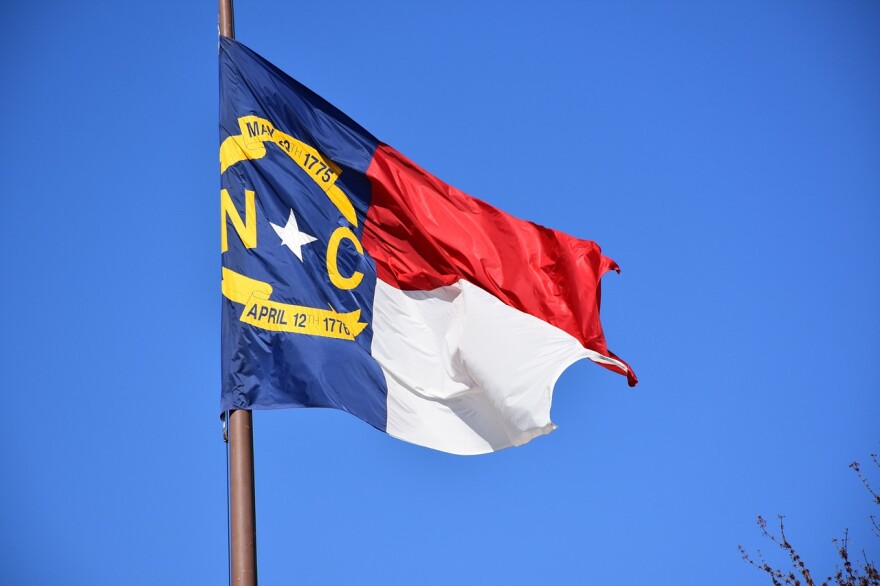Twenty-three percent of all jobs at state agencies across North Carolina are vacant. That’s a record high and double the number of vacant spots from a decade ago. And those open positions are having an adverse effect on businesses. That’s something Ren Larson wrote about for The Assembly and she joins "Morning Edition" host Marshall Terry to discuss.
Terry: We’ll get to how businesses are feeling the effects of all of this in a moment. First, just why are there so many open positions in state agencies right now?
Larson: Marshall, I spoke with agency heads at seven of our state’s departments who told me that they're having a hard time recruiting and retaining quality employees, and the top reason for that are low wages within our state salaries over the last two decades. Wages have not kept pace with inflation.
Terry: So there's the reason why, but what does it mean for businesses when you have so many vacancies? How does it affect them?
Larson: Oftentimes, people don't realize the work that government does that supports our businesses. In North Carolina, we have the second largest state-operated ferry system. I spoke to restaurant owners, small business owners on Ocracoke Island, who said that reduction in ferry services has led to fewer ferries traveling to the island and their restaurants and their businesses sitting empty.
We've also learned that professional drivers, truckers who need to transport goods and drivers who transfer people are facing long delays in being able to renew their commercial driver's licenses, essentially not able to get appointments because there aren't enough appointments available because there's not enough staff.
Over the summer, it was taking the Secretary of State around 30 days to register a new business, a process that should take anywhere from two to five days. And that's because they have a high number of business registrations, around 650 to 700 a day. That's caused a backlog when the agency has roughly one in nine positions vacant.
Terry: And you write, it's not just business owners or people trying to get commercial driver's licenses feeling this. It can reach everyday citizens too. One example, in particular, you point out is a lack of agriculture department inspectors that can affect the food supply.
Larson: Yeah, I spoke with Agriculture Commissioner Steve Troxler, who was clear to point out that his agency has not dropped the ball yet, but he's worried that the day will come in the future. One in 11 employees at the Department of Agriculture and Consumer Service can retire and in five years that number will rise to one in four.
His employees touch everything in our food supply, so he's got inspectors who arrive at our approximately 50 slaughterhouses across the state that support mom-and-pop livestock farmers. Those inspectors are there as soon as livestock arrive to ensure that they're handled humanely and that the animals do not appear diseased or their organs are healthy as well as when they go through processing to make sure that things like dyes are not added.
Those positions start around $18.51 an hour, and employees have to endure conditions from sub-freezing to high humidity. If there aren't livestock inspectors there at the slaughterhouses, those facilities can't operate.
Terry: Now you also highlighted the Department of Health and Human Services, which you say has been among the hardest hit with these vacancies. So why is that exactly? And what's the trickle-down effect with that?
Larson: I'm sure we're all familiar at this time about how difficult it has been for any industry in the health care sector to retain employees. The pandemic really wore a lot of people out. And DHS has a 27% vacancy rate, which is the second highest of all of our state agencies. The vacancy rate is something that Sec. Cody Kinsley likened to running a relay race with the fourth person not being there.
Many of his employees are people who work in nursing facilities that the state staffs around the clock 24 hours a day, seven days a week, working with people with behavioral health needs and psychiatric needs. Those positions, they historically have recruited high school graduates and trained them up. But that training and that investment meant that the employees would start around $15 or $16.00 an hour. And I think it's easy to see how those employees could be recruited from other governmental health agencies as well as private agencies for higher wages or face burnout that has strained other parts of the health care sector.
Terry: So does this have the ear of lawmakers? Are they doing anything to try and recruit more workers?
Larson: Lawmakers passed a budget that included a 7% wage increase for our state workers, and that is something that many of the department heads said will help them in recruiting and retaining employees. But many acknowledge it's not enough. I spoke with Republican John Hardister, who's representative from Guilford County and he was keen to point out that he hoped that this will help but said that the legislature needs to get to work next year to further increase those wage. And it's not just salaries alone. He mentioned that many of our agencies may need more government positions as North Carolina's population has increased.



